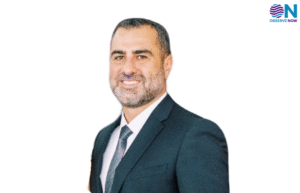New Delhi: Finance Minister Nirmala Sitharaman is gearing up to unveil the budget for the 2024-25 fiscal year on February 1, marking the concluding financial statement of the BJP-led government’s second term under Prime Minister Narendra Modi. Following the traditional pre-budget ‘halwa’ ceremony last week, officials are in a ‘lock-in’ period to safeguard the confidentiality of budget preparations until its presentation in the Lok Sabha. This interim budget holds significance as the government faces a general election in April-May, with the complete budget scheduled for July under the new administration.
The upcoming budget, Sitharaman’s sixth, will outline budgetary allocations and anticipated revenue collections for the fiscal year 2024-25. As public interest surges, many are seeking clarification on fundamental terms related to budgetary matters. These include familiar concepts like funds, appropriations, capital accounts, fiscal deficits, and finance bills, to more intricate terms such as GDP, inflation, consolidated funds, and customs duties.
The entire Social media and Internet is flooded with news stories and articles related to Union Budget 2024-25. ObserveNow Media has come up with a wordbook for the key terms that are frequently used during budget presentations and discussions to gear up for the upcoming budget session.
Below mentioned are the budget terms with their meanings:
Fund: A pool of money set aside for a specific purpose or investment.
Account: A record of financial transactions for a specific purpose.
Appropriation: Authorization by a legislative body to allocate funds for a particular government expenditure.
Adopted Budget: The budget officially accepted and approved by a governing body.
Appropriation Bill: Legislation specifying the approved government expenditures.
Annual financial statement: Comprehensive report presenting a government’s financial performance and position over a fiscal year.
Capital account: Record of a country’s financial transactions related to capital inflows and outflows.
Fiscal deficit: The difference between a government’s total spending and its total revenues.
Finance Bill: Legislation that outlines the government’s proposed financial policies and measures for the upcoming fiscal year.
Indirect tax: Tax levied on goods and services rather than on income or profits.
Debt: Money owed by an individual, organization, or government to creditors.
GDP: Gross Domestic Product – the total value of all goods and services produced by a country in a specific time period.
Inflation: The rate at which the general level of prices for goods and services rises, eroding purchasing power.
Consolidated Fund: A government account that consolidates all revenues, loans, and withdrawals.
Customs duty: Tax imposed on goods when transported across international borders.
Fiscal policy: Government’s use of taxation and spending to influence the economy.
Revenues: Income earned by a government, typically through taxes and other sources.
Expenditures: Money spent by a government or organization for goods and services.
Fiscal year: The 12-month period used by governments and businesses for financial reporting and planning.
Indexation: Adjusting values, such as wages or taxes, to account for inflation.
Capital budget: Budget for spending on long-term assets and investments.
Operating budget: Budget detailing day-to-day expenses for ongoing operations.
Corporation tax: Tax levied on a company’s profits.
Project budget: Allocation of funds for a specific undertaking or initiative.
Flexibility budget: A budget that allows for adjustments based on changing circumstances.
Capital Expenditure: Spending on acquiring or maintaining fixed assets.
Contingency Fund: Reserved funds for unforeseen or emergency expenses.
Economic Survey: An annual report on a country’s economic performance and outlook.
Interim Budget: A temporary budget presented during a transition period before a full budget.
Outcome Budget: Focuses on the results achieved by government programs rather than just spending.
Primary Deficit: Fiscal deficit excluding interest payments on previous borrowings.
Revenue Deficit: The difference between revenue expenditure and revenue receipts.
Vote on Account: Provisional approval for government spending until a full budget is passed.
As the financial year in India runs from April 1 to March 31, the interim budget sets the stage for the subsequent government to present a comprehensive budget in July. It’s a crucial time when citizens eagerly await insights into economic policies, revenue projections, and government spending strategies.
ObserveNow Media will be covering the Live Coverage of Budget 2024 on all the social media handles.


























